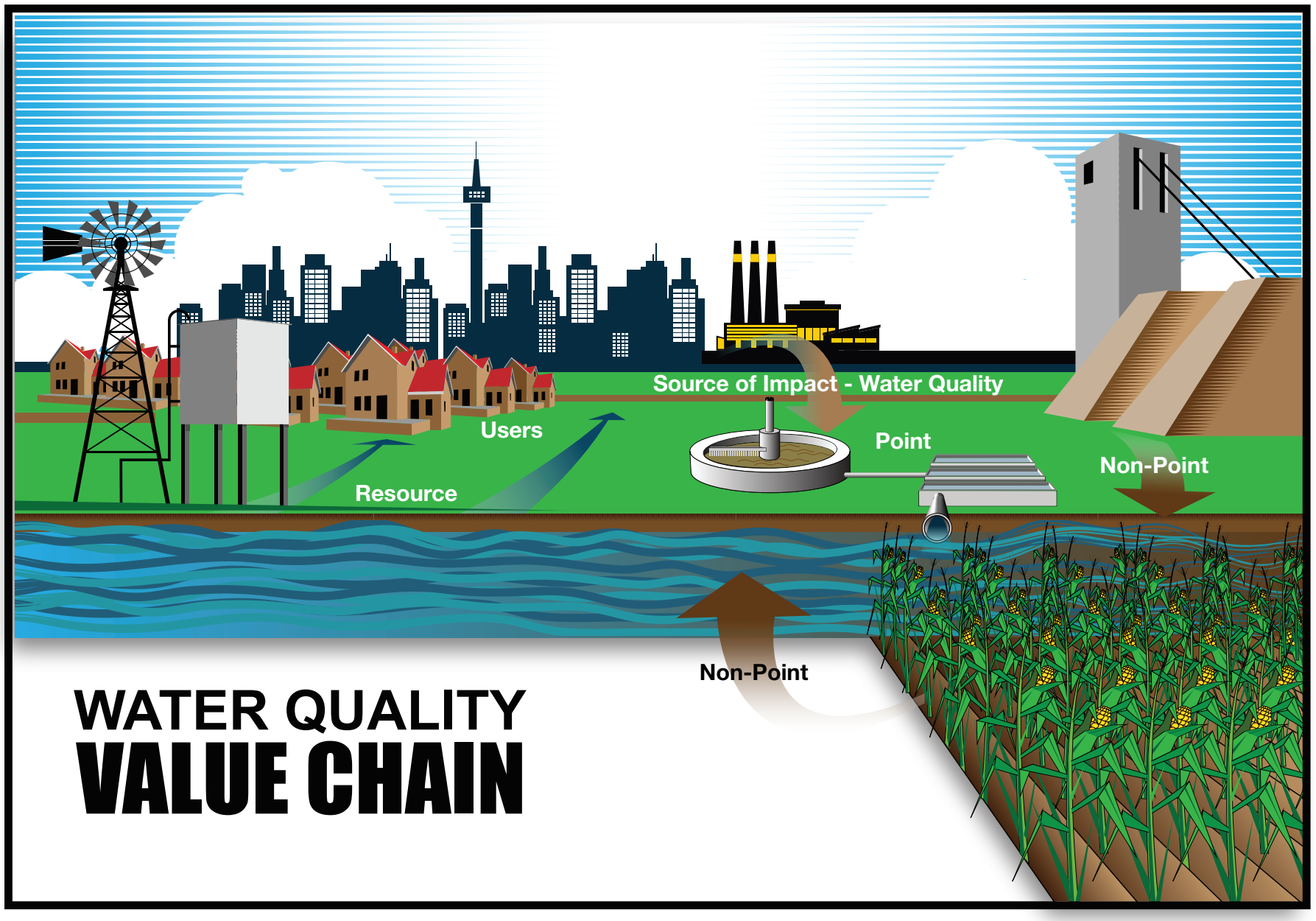REVISON OF WATER QUALITY MANAGEMENT (WQM) POLICIES AND STRATEGIES FOR SOUTH AFRICA
South Africa faces a wide range of water quality challenges impacting on both surface water and groundwater, originating from both point source discharges such as industrial processes and municipal waste water treatment works, and from diffuse sources due to run-off from land.

These pollution challenges manifest at various scales, differ between catchments, and have different severities of impact. These impacts are likely to be affected by a number of growing future trends including increased demands for limited water supplies, changes in temperature and rainfall due to climate change, increased urban impacts due to rapid urbanisation and increased needs for food and energy production.
The pollution of South Africa’s water resources not only adversely affects human and environmental health but has severe consequences for the economy and social well-being, it:
reduces the amount of water available for use (more water must be retained in our river systems to dilute the pollution to acceptable standards); increases the costs of doing business (the cost of municipal water treatment increases and many enterprises are forced to treat water before being able to use it in their industrial processes,); impacts on human health and reduces productivity (an increased number of work days are lost due to water-related illnesses); threatens several economic sectors (poor water quality impacts on crop yields and makes crops vulnerable to import restrictions from countries with strict quality standards), and threatens ecological goods and services provided by our water resources.
Consequently, deteriorating water quality is a socio-economic and development challenge and the management of the country’s water resources must be undertaken within the realities of increasing water resource pressures whilst aiming to sustainably support socio-economic development and specific water use requirements.
In response to the country’s need to take an improved integrated approach to Water Quality Management (WQM), the DWS embarked on an initiative to revise, update and consolidate its policies and strategies for managing the quality of the water in the Country’s water resources and to develop a pragmatic plan for the conversion of the Integrated Water Quality Management (IWQM) Policy and Strategy into practice.
|
Together these management instruments aim to ensure that Government, in partnership with private sector and civil society, secures water that is fit for use, for all, forever!”
|
The focus of the new IWQM policy and strategy is thus on the water resource, and on the decision-making principles and strategies needed to manage the water quality in our water resources (rivers, dams, lakes, wetlands, estuaries and aquifers).
Whilst the strategy has been completed and priorities have been established for implementation over the next few years, the IWQM Policy will be undergoing more rigorous engagements and will be gazetted for public comments before it Is finalised.
12978
|